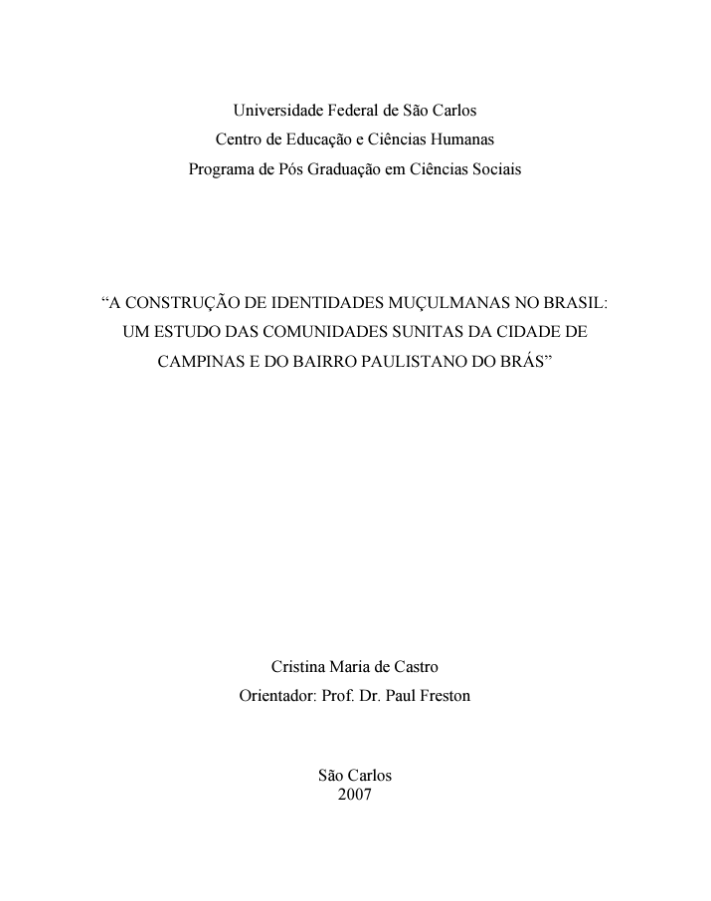
This thesis analyses the construction of Muslim identities in Brazil, basically through the participant observation technique in the Islamic Center of Campinas and the Islamic Youth League, in Bras neighbourhood, in Sao Paulo city. I try to understand how this process of construction of identity happens towards: 1) the negotiation with the Brazilian host society, characterized by the strong presence of Catholicism, the growth of Protestantism, a secular state, a basically Western culture, dependency on the USA and the Brazilian tradition of absorbing immigrants in a very strong process of assimilation; 2) the globalization of Islamite trends, also meaning the creation of a new consciousness of Ummah and; 3) the negotiations inside the Muslim com1nunities, between Arabs and converts and also between men and women to define what means to be a male and female Muslim in Brazil. Finally, the comparative study of two Muslim communities with such different profiles as the Sunni communities of Campinas and Bras, allows to analyse until what point different occupations, ethnic backgrounds and spatial distributions promote the arising of different Isla1nic practices and speeches, towards the fields previously delimited .
De Castro, C. M., ‘The Construction of Muslim Identities in Brazil: A Study of the Sunni Communities of the City of Campinas and the Paulisian Quarter of Brás’ (Unpublished doctoral thesis: University of São Paulo, 2007).
I agree to the terms outlined below:
You agree to upload and assign Mosqpedia Database the rights to use the content worldwide and in perpetuity across all current and future media platforms. Mosqpedia Database may edit, copy, adapt and translate your contribution.
The content will be distributed under the Creative Commons Attribution-Deed – Attribution-NonCommercial-NoDerivatives 4.0 International – Creative Commons
All data will be stored in line with data protection regulations.